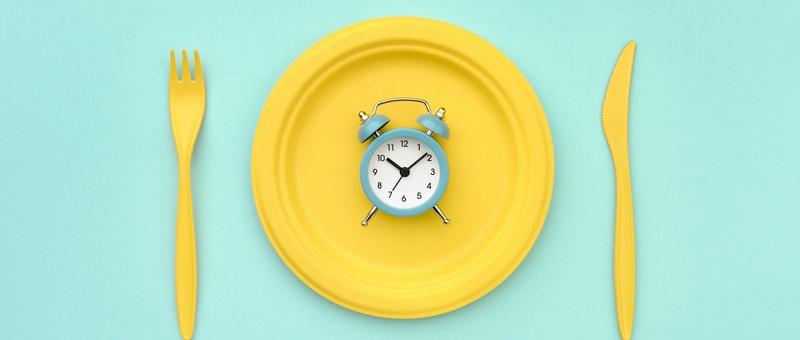
What's your ageotype: the four main ways we age
Peer reviewed by Dr Colin Tidy, MRCGPLast updated by Lawrence HigginsLast updated 9 Feb 2026
Meets Patient’s editorial guidelines
- DownloadDownload
- Share
- Language
- Discussion
While we all age the same chronologically, year on year, we don't each age biologically in the same way. Our genes, environment, and lifestyle habits all play a part in this.
There are thought to be four main and overlapping biological ageing patterns that we fall into. Scientists have called these 'ageotypes' - and knowing yours could help you live a longer, healthier life.
In this article:
Video picks for Ageing
Ageotype - which part of your body is oldest?
We all age as we get older, but how we individually age is different. This is because different parts of our bodies age at varying rates. The older a particular body part, the higher chance you have of certain health problems - and this is related to how quickly its cells are declining or becoming damaged.
Although the ageing process is multi-layered - influenced by genes, the environment, and lifestyle factors - scientists have identified four main ways that individuals age, each corresponding to a particular part of our bodies. Each of these distinct ageing patterns is known as an ageotype.
Dr Kerry Aston is a rheumatologist specialising in longevity.
She outlines some of the key reasons why parts of our bodies age differently:
Cellular turnover - "Different tissues and organs in our bodies have varying rates of cellular turnover. For instance, your skin has rapid cell turnover - think how quickly it's able to start repairing after you cut yourself. In contrast, neurons in the brain have limited capacity to regenerate which will make them more susceptible to age-related decline."
Oxidative stress - "Oxidative stress is cell damage caused by unstable atoms known as free radicals. Organs and systems that are more exposed to oxidative stress, such as the skin and lungs, may age faster."
Genetic factors - "Some people may have genes that make them more resilient to ageing in certain areas, while others may be genetically predisposed to age faster."
Environmental influences - "Lifestyle choices, such as diet, exercise, and exposure to toxins, can impact the rate of ageing in specific organs. For example, regular exercise can slow down muscle and bone ageing, while a poor diet can accelerate the ageing of vital organs."
What are the four ageotypes?
Regular blood, poo, and other biological samples were taken to study a range of molecules in the body, which captured four clear and very distinct patterns:
1. Metabolic ageotype - metabolism
This ageotype means your metabolism is ageing at a high rate compared to other parts of your body. Metabolism is a term that describes the complex chemical reactions that allow you to turn food into energy.
Your body uses this energy to keep you alive. For example, it enables breathing, blood circulation, cell repair and growth, food digestion, and many more essential activities. A metabolism in age-related decline is linked to obesity, heart disease, and metabolic disorders like type 2 diabetes.
2. Immune ageotype - immune system
The immune ageotype focuses on the immune system's decline with age. A healthy and younger immune system is better at fighting off infections and managing long-term (chronic) inflammation.
So, a declining immune system leaves you more susceptible to these, as well as autoimmune diseases like type 1 diabetes, rheumatoid arthritis (RA), and multiple sclerosis (MS).
3. Hepatic ageotype - liver
This ageotype relates to the liver's ageing process and its role in detoxification. Your liver’s job includes processing nutrients and filtering out harmful toxins from your body.
A strong hepatic ageotype may mean it doesn't perform these tasks as well. Liver decline may also increase your chances of liver diseases, including cirrhosis and non-alcoholic fatty liver disease (NAFLD).
4. Nephrotic ageotype - kidney
The nephrotic ageotype is all to do with kidney function. Your kidneys are powerful chemical factories that balance the body's fluids, regulate blood pressure, remove waste products, and produce vitamin D, among other tasks.
Ageing kidneys can have problems filtering out potentially harmful substances, cause blood pressure peaks or dips, or create imbalances in essential minerals. There’s also an increased chance of kidney diseases.
Ageotypes are overlapping
Back to contentsBut we don't all fit neatly into one of four ageotypes. If you are showing signs of ageing in one of these body parts, this doesn't mean you're not also ageing in another one, or two - or even all four.
For example, in a study by Standford Medicine:
One person had strong signs of being a kidney (nephrotic) ageotype but was also found to be ageing at a slower rate in the other three ageotypes. This means that as they age, they might struggle with high blood pressure, but find it easier than others to keep a healthy weight and ward off infections.
Another person displayed strong patterns in metabolic and kidney ageing, but not in the immune system or liver (hepatic). With age, they might need to work harder to avoid type 2 diabetes, high blood pressure, and obesity through lifestyle choices. But, they may be able to maintain a healthy liver and an immune system that successfully fights inflammation.
For many people in the study, all four ageotypes were strong - indicating that there was significant age-related decline in all four parts of their bodies. However, ageing is a natural and inevitable part of life. No matter how many ageotypes you fall into, these don't guarantee you'll experience specific health problems.
In fact, everyone in the study was healthy - the liver (hepatic) ageotypes had no liver problem symptoms, just as there were no autoimmune diseases among the immune ageotypes.
Continue reading below
Are ageotypes the key to longevity?
Back to contentsWhat ageotype categories may do is help you make better lifestyle choices, by revealing which health problems you might be more vulnerable to.
Dr Aston explains: "Pinpointing the organ under the most stress - the 'oldest' part of your body - and focusing your efforts there, will offer the most significant benefits to your overall health and longevity.
"For instance, if testing reveals that you have the metabolic ageotype, indicating a higher chance of developing type 2 diabetes and heart disease, you can take measures that improve your insulin sensitivity, support weight management, and lower your likelihood of cardiovascular disease.
This includes:
Reducing how much sugar and processed food you eat.
Increasing your intake of fibre-rich foods.
Introducing regular physical activity.
Ageing is inevitable, but the rate at which we age may not be. In the study, while some people's ageotype markers increased over two years, in others they declined when those people changed their lifestyle.
They didn't stop ageing, but the ageing process was slowed in certain organs. This was particularly apparent in the kidney - when levels of the beneficial molecules creatine and blood sugar (haemoglobin A1c) increased - helped by weight loss, diet changes, or taking medicines called statins.
Yet, in a handful of cases where ageing slowed, there were no obvious reasons why. No changes that involved diet, exercise, or medicines. Ageing is complex and affected by other factors like genetics and life stresses, and researchers are only beginning to unravel how truly personal ageing might be.
Can we really slow down ageing?
Back to contentsWe've come a long way in understanding ageotypes, why different parts of our bodies seem to age differently, and how our behaviour affects this.
"However, this field is continually evolving," says Dr Aston. "There's still much more to uncover about the implications of this knowledge and how we can best use this information."
She highlights the work that needs to be done before we have truly targeted and personalised treatments for ageing:
Knowledge gaps - "There is still much we don't know about the links between genetics, environment, and ageotypes. Further research is needed to identify if there are more ageotypes and refine the existing catagories."
Intervention strategies - "While we have insights into how lifestyle changes can affect ageotypes, more research is needed to develop treatments and methods for slowing down the ageing process in specific body parts."
Personalised approaches - "It's still early days when it comes to using our knowledge of ageotypes to give people useful and personalised lifestyle advice that could help them live longer."
Still, just knowing your ageotype, or ageotypes, could be a powerful tool - but don't expect test kits to become available any time soon. It takes a huge amount of data, collected over a long period, to determine this information.
But more studies and data can move this area forward, and with this, researchers believe that ageotypes may ultimately become a useful tool for monitoring and intervening in ageing.
Patient picks for Ageing

Senior health
The best anti-ageing supplements for your health
The term anti-ageing is written on many beauty creams and other skincare products packaging. But what does anti-ageing mean inside the body? Here, it goes beyond the appearance of our face lines, to healthy internal ageing. This means how well our cells and organs are remaining healthy and able to fight decline and disease as we grow older - so that we can live happily for as long as possible. We explore the anti-ageing supplements that help our bodies do just this, according to experts.
by Heather Ainsworth

Diet and nutrition
Could your diet be your best anti-ageing secret?
When we think about anti-ageing, our attention often turns to outward signs - fewer wrinkles, a trimmer figure, and hair less touched by grey. However, by prioritising what's happening inside our bodies, we can live a longer, healthier life, both inside and out.
by Victoria Raw
Continue reading below
Article history
The information on this page is peer reviewed by qualified clinicians.
Next review due: 9 Feb 2029
9 Feb 2026 | Latest version
23 Oct 2023 | Originally published
Authored by:
Amberley Davis

Ask, share, connect.
Browse discussions, ask questions, and share experiences across hundreds of health topics.

Feeling unwell?
Assess your symptoms online for free
Sign up to the Patient newsletter
Your weekly dose of clear, trustworthy health advice - written to help you feel informed, confident and in control.
By subscribing you accept our Privacy Policy. You can unsubscribe at any time. We never sell your data.